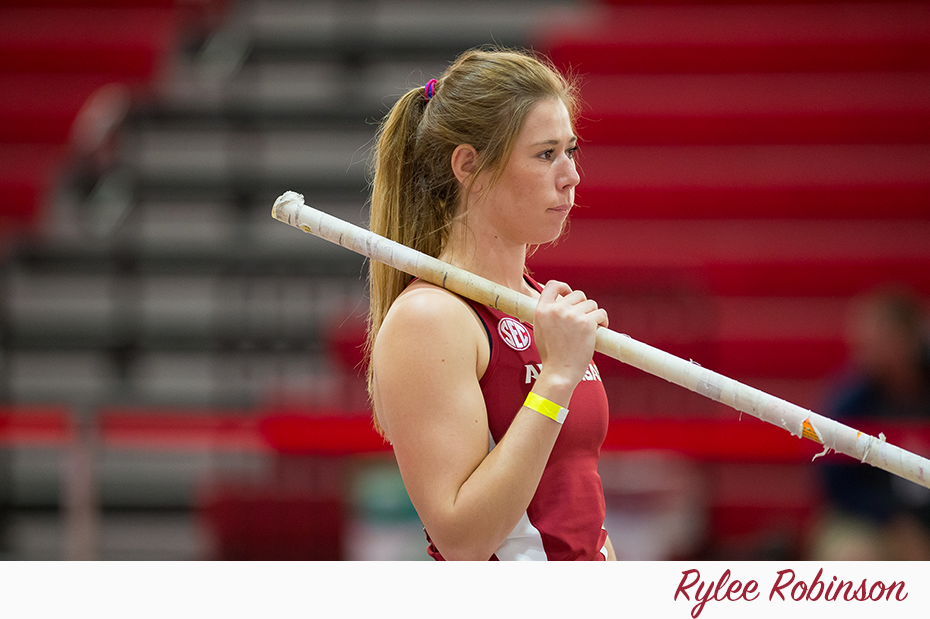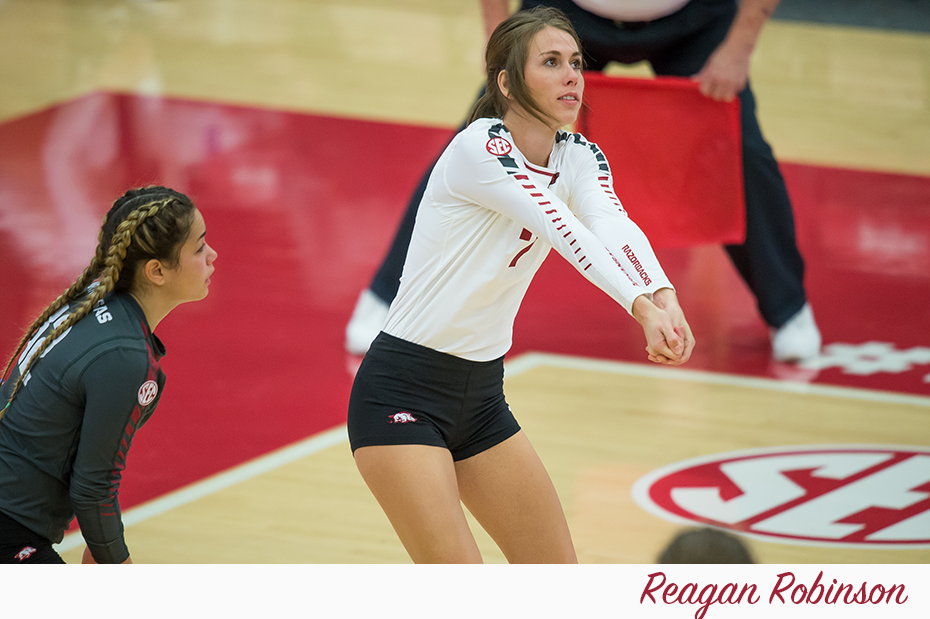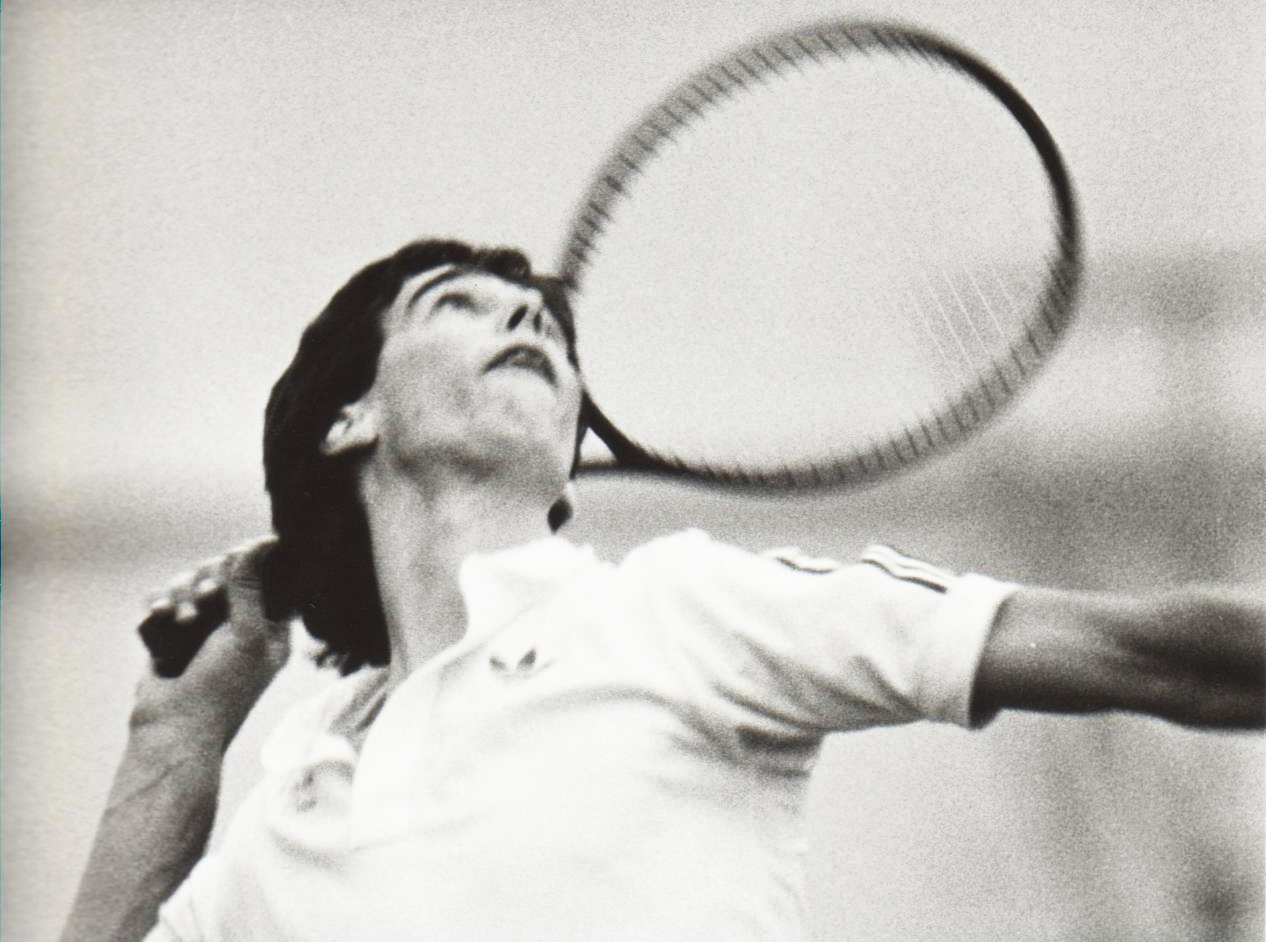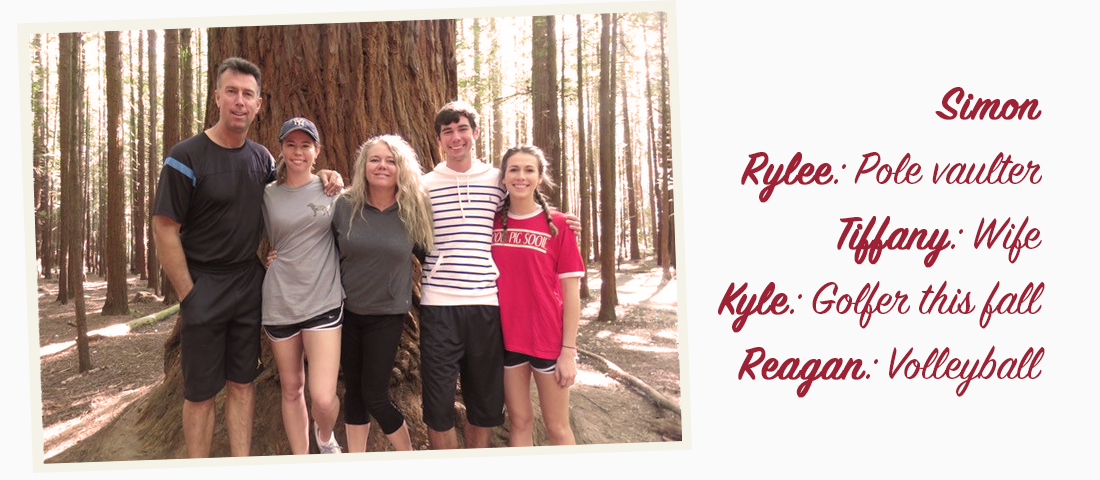As my kids were getting a little bit older, we wanted to get out of Dallas and raise our kids in a small college town, where we can go to all these sporting events for next to nothing, where everything is a 5-10 minute drive and not an hour and a half across town. I thought I would take a real risk and put it in God’s hands. I thought I wanted to buy a company. It didn’t matter what industry, so I cashed in my retirement plans. We sold everything we had and I spent 18 months trying to find a company to buy.
We finally bought a company in August of 2011 called Ready Flow Printing in Rogers. The gentleman had started the company in 1982, oddly enough the same year I started at Arkansas. The company is in an industrial park and I spent years in suits and ties going to beautiful hotels and buildings. Tiffany asked me if I did the right thing and I said, “absolutely we’re in Hog Heaven!”
My wife didn’t quite get the whole “Razorback” thing, so what we did was come up for football games, track meets and tennis matches. Slowly I started indoctrinating Tiffany on coming up here and as the time went by she realized how beautiful it was. We’d always bump into people that I knew. Even my kids would say that we couldn’t go anywhere without bumping into someone I knew. I told them that’s the great thing about living in a small college town, you just get to know everybody and it’s like a big family.

When I came to Fayetteville at 17 I had such a vision to try and become the best tennis player I could. The two degrees I earned just came along on the side of my goals of becoming a tennis player. My degree wasn’t my priority and if I could go back and do it again I would apply myself better in the business school. I think the problem that a lot of young athletes have is that they can’t see past the sport they’re doing. They have short term vision. Tennis could be over at the age of 23 or 24.
If you take every college athlete that played a college sport, it doesn’t matter what it is, only one percent move on to the pros and make a living doing their sport. So for the other 99 percent of the athletes that come, they are going to have to get here and learn and apply themselves in school because they are going to need that degree. The sport that you play gives you an edge in a job interview because they look at you differently when you tell them you were a Division I athlete.
My regret would be that I did not apply myself better in the school of business. The risk that I took when I was young was easy, because it was just me. I came here with one suitcase, two tennis rackets and $500. I was on my own and I didn’t know anybody in this country. Now I have to put food on the table, provide for my family, be a good member of society and figure out how to contribute. The risk the second time around owning my own company was easier for me, because I knew what I was coming back to in Arkansas. I knew it would be a great move for my family, but the problem was that my family didn’t know it would be a great move.
I love the Razorbacks, I was on a full scholarship. I was an average college tennis player. I am so indebted to the University for everything it has given me.
When you’re an athlete, you get told be at the van at 2 p.m. Who organized that? You have all the facilities. You have all the training. You have the meals planned and ready. All you have to do is show up and perform. I think when you’re a college athlete, you take that for granted. It’s not until after you’ve graduated that you realize that you have to go out and join a tennis club and pay for it yourself. While you’re here it’s all happening for you for nothing.

When I look back, I always appreciated that. I think the college experience, if you make the most of it, can set you up for achieving great things.
I think sometimes being a college athlete you can learn to be selfish, because it’s all about you. Another great thing about playing on a team is that here you are cheering for your teammates. You’re rooting for them. I’ll play with former Razorback tennis student-athlete and coach Robert Cox and some other guys on Tuesday nights and I walk in there and I feel privileged to be able to play on those courts.
I can remember being in the business school my senior year and my friends in school were putting their ties on and going in for interviews with Xerox or Tyson. I would look at them as a guy that was just focused on tennis and thought I have no desire to do any of that. I just couldn’t see past a tennis ball. I am so glad I graduated because when you have a degree or two, it just opens up doors. Without those degrees my life would have taken a totally different turn and I wouldn’t have been able to get into the career that I did. Getting the degree is essential, even though at the time I was blinded by the sport that I chose.
My advice to any student-athlete would be to come here, give your sport everything you can and become the best that you can be. That way, when you graduate and you’re one of the 99 percent and not the 1 percent, you’re going to have to go and get another life after your athletics. Be able to walk away knowing you maximized your potential and gave it everything you possibly had. Take those skills and use them in whatever you do next. Having the degree and being a Division I athlete, separates you from the pack.
A lot of people in life settle, they get to a certain point and they settle. Keep pushing the envelope, keep stepping up to the plate and have another swing. Another strikeout isn’t a bad thing, if you can learn from it.
What I’ve gotten out of being a Razorback athlete is an incredible work ethic. I surrounded myself with winners, believers and top-notch people who pushed me and carried me through. Those are the type of people you want to surround yourself with and then once it’s all over and you move out into the real world, you have a set of skills that you can lean on. If you play your cards right you can achieve great things whatever that means to you because success is different for everybody.
Training Ground For Life Series
Kicking the Door Down: By Pat Bradley: Click here to read
Game Time: By Celia Anderson: Click here to read
Training Ground For Life: By James Johnson: Click here to read







